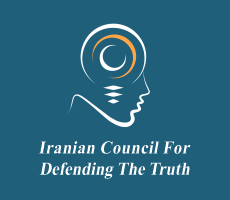At this point, we have only the uncontested reports that Israel is responsible for Natanz sabotage, having virtually confessed as much. The explosives used are believed to have been smuggled past security guards by being sealed within a steel table and then detonated from a remote location. The complete destruction of the power distribution supply system used to make the centrifuges work has been confirmed as the main damage. It has been estimated by Israelis that it might take Iran as long as nine months to make the facility operational again.
The United States has officially declared that it had no role in this act of sabotage, but it is hard to believe that Washington did not have advance knowledge, and there is no evidence of any attempt to prevent the attack from being carried out or complaints after the fact. Israel leaders although evasive, seemed to justify the attack as part of the country’s defense against the controversial assumption that despite Tehran assurances, Iran is developing the capacity to produce nuclear warheads that could be attached to missiles or rockets, posing dire threats to Israeli security. Iran continues to deny that it is seeking a nuclear weapons capacity. Iran’s Foreign Minister, Javad Zarif, has vowed unspecified ‘revenge’ for the attack on Natanz, but there is no indication that this is meant to signal a reversal of Iran’s policy toward the acquisition of the weaponry.
In the background, is the reality of Israel’s nuclear weapons arsenal that seems to stay below the radar of proliferation concerns and overlooks Iran’s reasonable apprehension of what this could mean in the future for its own security.
I believe the attack had as its primary purpose, a provocation designed to escalate tensions between Iran and Israel, and encourage the U.S. to stick with the Trump approach to relations with Iran. This hypothesis of provocation is reinforced by the highly belligerent statements made by Netanyahu when asked about the Natanz attack. Instead of a denial or even a claim of Israeli worries, he chose to treat the relationship between the two countries as a relation between two enemies poised to destroy one another. He is quoted as claiming that the ‘fanatical regime’ governing Iran without doubt intends to acquire nuclear weapons so as to destroy Israel in pursuit of their ‘genocidal goal of eliminating Israel.” Netanyahu added that Israel would continue ‘to defend itself against Iran’s aggression and terrorism’ as if Iran was the provocateur. Such language offers an official indirect justification for what happened an Natanz, as well uses warlike language of implacable hostility.
I suspect that Israel by such high-profile sabotage and incendiary language is doing its best to tie the hands of the Biden presidency, agitate pro-Israeli sentiments in the U.S. Congress and Western media. The secondary objective is to obstruct the Iranian nuclear program, which is consistent with such past acts of aggression as the disabling of centrifuges through the insertion of the Stuxnet virus back in 2010 as well as through targeted assassination of leading nuclear scientists, including Iran’s leading nuclear specialist, Mohsen Fakhrizadez in November 2020. This pattern of covert violence has long violated Iran’s sovereign rights and has been understandably denounced by Iranian officials as ‘nuclear terrorism.’
What is uncertain at this time is whether Israel will commit further provocations, how Iran will react, and whether the United States will take the bait, and either delay JCPOA negotiations or demand Iranian compliance with new conditions beyond the original agreement before it lifts or even eases the sanctions or resumes its own participation.
There is some reason to believe that if there was such coordination it would not be necessary for Israel to take the risks arising from such serious provocations. As with the Obama diplomacy that led to the agreement in 2015, there are differences between the U.S. interest in regional stability and the Israeli determination to keep destabilizing Iran so as to realize at some point its undisguised goal of regime change.
At the same time, with the COVID challenge uppermost as a policy priority for Biden, there may be some level of coordination, involving reassurances to Israel that it will not make things easy for Iran with respect to the sanctions or JCPOA. Biden seems eager to avoid diversionary issues in America that would allege that the U.S. is failing to uphold reasonable Israeli security demands.
As of now, resort to the ‘indirect talks’ in Vienna suggest that both sides are proceeding cautiously, keeping their options open. The next month or so will make clearer whether the U.S. will separate its search for normalization with Iran due to pressures arising from its special relationship with Israel or will pursue a diplomatic course in accord with its national interest. It will never be able to satisfy Israel and reach a negotiated agreement with Iran. It must choose, and hopefully opting for peace and diplomacy rather than coercion and hostility.

